Are you ready to experience the thrill of the simple garden? Look no further!
Gardening is a fun and rewarding activity that offers various health benefits. Spending time in the garden can be a form of exercise, reducing the risk of health problems such as heart disease and diabetes. It can also improve mental well-being by helping to reduce stress and ward off depression. Additionally, gardening provides an opportunity to grow and consume fresh fruits, vegetables, and herbs, making it an excellent way to incorporate healthy foods into your diet. Beginners can start with easy-to-grow plants such as lettuce, kale, and herbs.
Gardening is also a great activity to involve children in, teaching them about nature, science, and healthy eating habits. Taking safety precautions, such as wearing appropriate clothing and gear, and testing the soil before gardening, is important. Overall, gardening is a simple and enjoyable way to connect with nature, improve physical and mental health, and enjoy the fruits (and vegetables) of your labor.
Key Takeaways:
- Gardening offers various health benefits, including exercise and improved mental well-being.
- Growing and consuming fresh fruits, vegetables, and herbs through gardening can enhance your diet.
- Beginners can start with easy-to-grow plants like lettuce, kale, and herbs.
- Gardening is an educational activity for children, teaching them about nature and healthy eating.
- It is essential to take safety precautions, such as wearing appropriate clothing and gear, when gardening.
Unleash Your Creativity with The Simple Garden
Let your imagination run wild as you discover unique garden ideas and innovative small garden designs. The simple garden is a canvas waiting to be transformed into a personalized oasis that reflects your style and preferences. Whether you have a tiny balcony, a small backyard, or even just a sunny window sill, there are endless possibilities to create a stunning and functional outdoor space.
One idea to consider is vertical gardening, which allows you to maximize your space by utilizing walls and fences for planting. Install wall-mounted containers or create a trellis system for climbing plants to create a lush vertical garden. This not only adds visual interest but also provides privacy and shade. Additionally, incorporating hanging baskets and tiered plant stands can add depth and dimension to your small garden.
When it comes to design elements, color palettes, and materials, the possibilities are endless. You can opt for a cohesive and minimalist look with a monochromatic color scheme and clean lines, or you can embrace a vibrant and eclectic style by mixing and matching different colors, textures, and patterns. Don’t be afraid to experiment and let your personal taste shine through in your garden design.
With the simple garden, you have the freedom to explore various themes and styles, whether it’s a calming Zen garden, a whimsical fairy garden, or a modern urban jungle. Let your creativity guide you as you incorporate elements like water features, sculptures, and decorative lighting to add even more character to your outdoor space. Remember, the key is to create a garden that brings you joy and reflects your unique personality.

| Benefits of Unleashing Your Creativity |
|---|
| 1. Increased aesthetic appeal |
| 2. Personalized and unique outdoor space |
| 3. Improved mental well-being and relaxation |
| 4. Opportunity for self-expression and artistic exploration |
| 5. Enhanced sense of pride and accomplishment |
Unleash your creativity with the simple garden and transform your outdoor space into a sanctuary that brings you joy and inspiration. Whether you have a small balcony, a tiny backyard, or just a sunny window sill, there are endless possibilities to create a unique and beautiful garden. Let your imagination run wild and discover the joy of designing your own small garden.
Easy Gardening Tips for Beginners
As a beginner, starting your own simple garden has never been easier! Here are some expert tips and gardening hacks to get you started on your green thumb journey.
- Choose Easy-to-Grow Plants: When starting out, it’s best to select plants that are known for their resilience and adaptability. Lettuce, kale, and herbs like basil and mint are great options for beginners. These plants require minimal care and can thrive in various growing conditions.
- Prepare the Soil: Before planting, it’s essential to ensure that your soil is in good condition. Break up any clumps and remove weeds or debris. Consider adding organic matter like compost or aged manure to improve soil fertility and drainage.
- Water Wisely: One of the keys to successful gardening is watering your plants properly. It’s important to water deeply and less frequently rather than shallowly and frequently. This encourages strong root growth and prevents waterlogging. Invest in a watering can or hose with a nozzle attachment for precise watering.
- Protect Your Plants: Keep an eye out for pests and diseases that can damage your plants. Use natural pest control methods like companion planting and organic insecticides. Additionally, consider installing bird feeders or bird baths to attract beneficial birds that feed on garden pests.
Remember to enjoy the process and learn from any mistakes you may encounter along the way. Gardening is a journey of exploration and discovery, and you’ll develop your own techniques and preferences over time.
Expert Gardening Hack: Companion Planting
Companion planting is a technique where certain plants are grown together to benefit each other. For example, planting marigolds alongside tomatoes can help deter pests, while planting beans next to corn can improve nitrogen levels in the soil. By strategically arranging your plants, you can create a natural balance that enhances growth and helps reduce the need for pesticides.
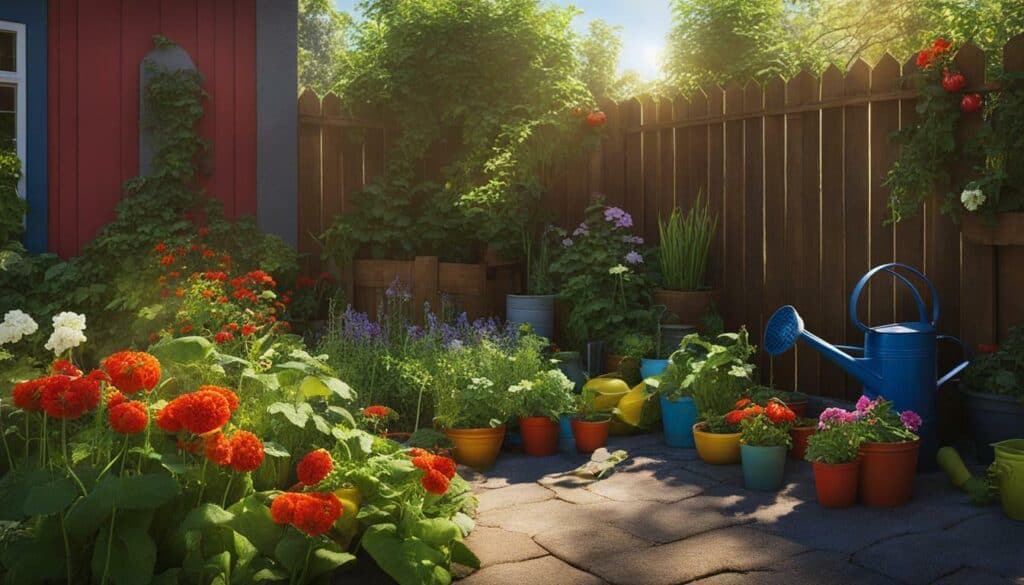
| Plant | Characteristics |
|---|---|
| Lettuce | Easy to grow, fast-maturing, and tolerant of cool temperatures. |
| Kale | Durable and nutrient-rich, kale is a versatile leafy green that can thrive in various conditions. |
| Basil | Aromatic and flavorful, basil is a popular herb that adds freshness to culinary dishes. |
| Mint | Hardy and abundant, mint is a refreshing herb that can be used in beverages, desserts, and more. |
By following these tips and incorporating gardening hacks into your routine, you’ll be well on your way to cultivating a thriving and beautiful beginner’s garden. Happy gardening!
The Beauty of Low Maintenance Gardens
Say goodbye to constant maintenance and hello to the beauty of low maintenance gardens. If you’re looking to enjoy the pleasures of gardening without the hassle of frequent upkeep, then a low maintenance garden is the perfect solution for you.
With a low maintenance garden, you can spend more time relaxing and enjoying your outdoor space, and less time worrying about pruning, weeding, and fertilizing. By selecting the right plants and implementing smart design strategies, you can create a stunning garden that requires minimal effort to maintain.
One key aspect of low maintenance gardening is choosing plants that are well-suited to your climate and soil conditions. Native plants and drought-tolerant varieties are excellent choices for reducing water consumption and minimizing the need for irrigation. Consider incorporating perennials, which come back year after year, and have a longer lifespan compared to annual flowers.
Another way to minimize maintenance is by implementing smart design elements, such as using mulch or ground covers to suppress weeds, creating defined borders and pathways to reduce the need for edging and trimming, and grouping plants with similar watering and sunlight requirements for easier care.
| Benefits of Low Maintenance Gardens | Examples |
|---|---|
| Time-saving | Less frequent watering and pruning |
| Cost-effective | Reduced need for fertilizers and pesticides |
| Sustainable | Native and drought-tolerant plants conserve water |
| Beautiful year-round | Choose evergreen plants for year-round interest |
By creating a low maintenance garden, you can enjoy all the beauty and benefits of a well-tended garden with minimal effort. So, why not embrace the simplicity and joy of a low maintenance garden and transform your outdoor space into a haven of effortless beauty?

Testimonials
“I used to spend hours on garden maintenance, but since I switched to a low maintenance garden, I’ve reclaimed my weekends and can now relax and enjoy my outdoor space.” – Sarah, avid gardener
“As a busy professional, I didn’t have much time to devote to gardening. Creating a low maintenance garden has allowed me to pursue my passion for gardening without feeling overwhelmed with upkeep.” – John, working professional
Growing Your Own Food Effortlessly
Imagine the satisfaction of plucking fresh fruits, vegetables, and herbs from your own backyard – all without breaking a sweat. That’s the beauty of growing your own food in a simple garden. Not only does it provide you with easy access to nutritious and delicious produce, but it also allows you to connect with nature and save money at the grocery store.
When it comes to growing your own food effortlessly, starting with easy-to-grow plants is key. Lettuce, kale, and herbs like basil and mint are great choices for beginners. These plants require minimal care and can thrive in small spaces, making them perfect for simple gardens. Plus, with their vibrant colors and fragrant aromas, they will add beauty and freshness to your outdoor space.
But the benefits of growing your own food go beyond just convenience and aesthetics. It’s also an excellent way to incorporate healthy foods into your diet. By harvesting your own fruits, vegetables, and herbs, you can ensure that you are consuming fresh, pesticide-free produce. Plus, gardening is a great form of exercise that can reduce the risk of health problems such as heart disease and diabetes.
| Benefits of Growing Your Own Food Effortlessly: |
|---|
| Access to fresh, nutritious produce |
| Reduced reliance on store-bought produce |
| Cost savings |
| Opportunity to connect with nature |
| Physical exercise and improved health |
| Teaching children about nature and healthy eating habits |
So, why not create your own simple garden and start growing your own food effortlessly? Whether you have a spacious backyard or a small balcony, there are endless possibilities to explore. Just remember to take safety precautions, wear appropriate clothing and gear, and test your soil before getting started. With a little time and effort, you’ll be enjoying the bountiful harvest from your own garden in no time.
Get Inspired with Easy-to-Grow Plants:
- Lettuce
- Kale
- Basil
- Mint
- Cherry tomatoes
- Strawberries
- Green beans
- Herbs like rosemary and thyme
Remember, the key to growing your own food effortlessly is to start small and gradually expand your garden as you gain confidence and experience. Before you know it, you’ll be enjoying the abundance of fresh, homegrown produce that your simple garden provides.
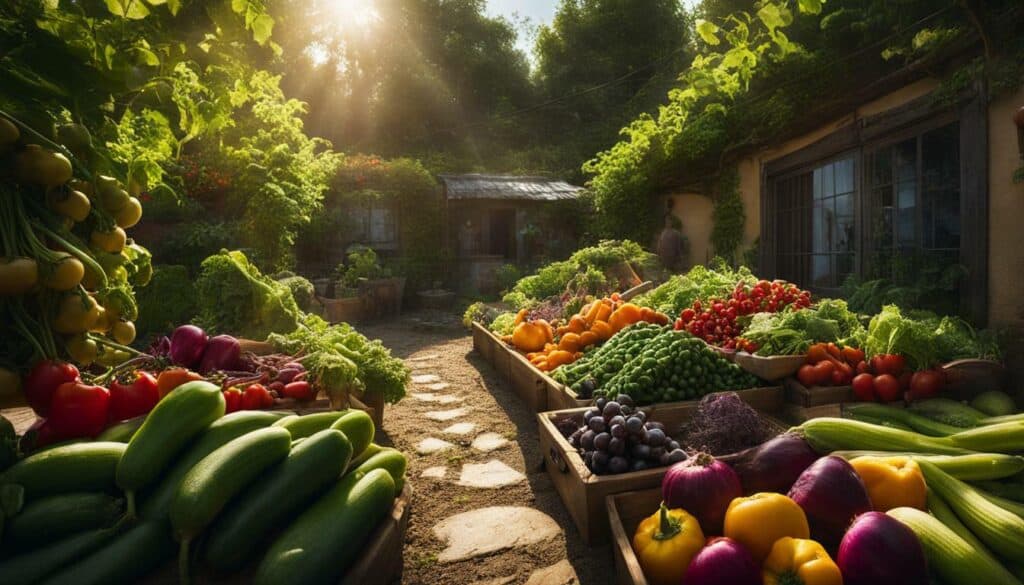
Involving Children in The Simple Garden
Engage your children in a world of wonder as you involve them in the joys of gardening. Not only will it provide them with valuable life skills, but it will also foster their appreciation for nature, science, and healthy eating habits. Gardening is a hands-on activity that allows children to connect with the natural world and witness the miracle of plants growing from seeds to fruits or flowers. It’s a great way to spend quality time together as a family and create lasting memories.
When involving children in the simple garden, start by assigning them age-appropriate tasks. Younger children can assist with simple tasks such as watering plants, pulling weeds, or picking ripe produce. Older children can take on more responsibility, like planting seeds, designing their own small garden section, or researching different plant varieties. This involvement not only teaches them about responsibility but also instills a sense of pride as they witness the fruits of their labor.
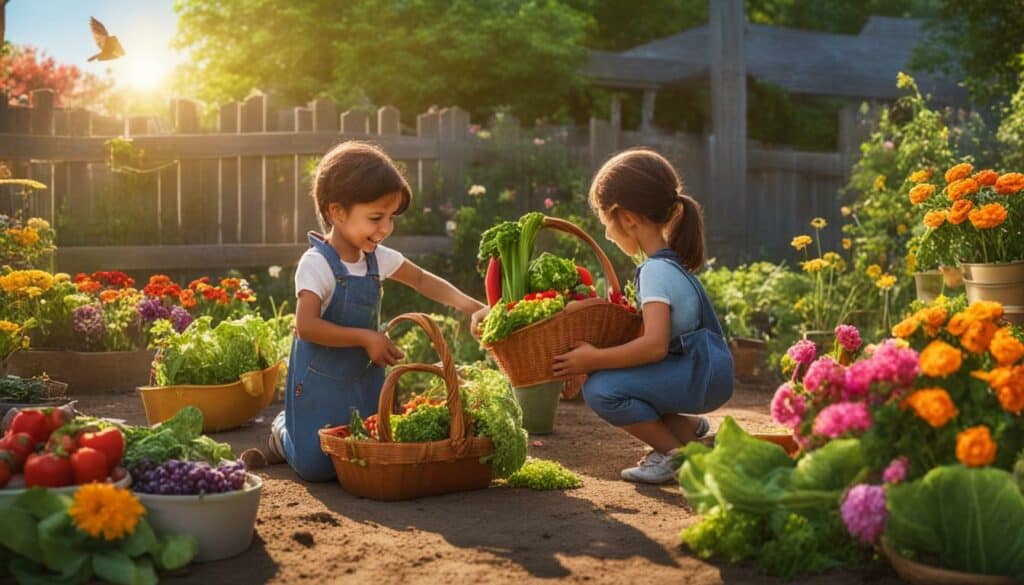
To make the experience even more enjoyable, incorporate learning activities into your gardening routine. Teach your children about the needs of plants, the life cycle of insects, or the importance of pollinators. Encourage them to keep a garden journal where they can record observations, draw pictures, or write down interesting facts they learned. This will not only spark their curiosity but also build their knowledge in various subjects.
Here are a few ideas to involve children in the simple garden:
- Plant a butterfly garden to attract and observe different species.
- Create a sensory garden with plants that engage their senses of touch, smell, and taste.
- Start a compost bin together to teach them about recycling and the importance of soil health.
- Grow vegetables and herbs that they can harvest, cook, and enjoy together.
By involving children in the simple garden, you’re not only fostering their love for nature but also teaching them important life skills and healthy habits. It’s a rewarding experience that will leave a lasting impact on their lives. So grab your gardening tools, put on your hats, and embark on this exciting journey with your little ones. Together, you’ll create a beautiful and bountiful garden filled with love and memories.
| Benefits of Involving Children in Gardening |
|---|
| 1. Encourages a love for nature and the environment. |
| 2. Teaches responsibility and nurtures a sense of accomplishment. |
| 3. Provides hands-on learning opportunities about science and the natural world. |
| 4. Promotes healthy eating habits through growing and consuming fresh produce. |
| 5. Enhances fine motor skills and coordination through gardening tasks. |
Safety Precautions for The Simple Garden
Prioritize your safety as you embark on your gardening adventures with these essential precautions. Gardening is a wonderful and fulfilling activity, but it’s important to take care and protect yourself from potential hazards. By following these safety guidelines, you can create a safe and enjoyable gardening experience.
1. Wear Appropriate Clothing and Protective Gear
When working in the garden, it’s important to dress for the task at hand. Wear sturdy shoes to protect your feet from sharp tools or thorny plants. Long pants and sleeves can prevent scratches and insect bites. Additionally, don’t forget to wear gloves to protect your hands from cuts, blisters, or contact with harmful substances.
Depending on the task, you may also need additional protective gear like goggles or a hat to shield your eyes and face from debris or the sun’s harmful rays. Remember, your safety should always be a priority.
2. Test Your Soil
Before you start planting, it’s crucial to test your soil for any contaminants. You can do this by sending a sample to a local agricultural extension service or using a home testing kit. Testing the soil helps you identify any potential risks, such as high levels of lead or other pollutants, which could affect your health or the growth of your plants. By knowing the quality of your soil, you can make informed decisions about what to plant and how to treat your garden.
3. Use Safe Tools and Proper Techniques
Ensure that your gardening tools are in good condition and suitable for the task. Sharp and well-maintained tools make gardening easier and safer. When using tools, be mindful of your body mechanics and use proper techniques to avoid strain or injury. Lift heavy objects with your legs, not your back, and pace yourself to avoid overexertion. Take breaks, stretch, and hydrate to stay energized throughout your gardening session.
By practicing these safety precautions, you can create a safe environment for yourself and others while enjoying the pleasures of the simple garden. Gardening is not only a way to connect with nature but also an opportunity to improve your physical and mental well-being. So put on your gardening gloves, grab your tools, and let the joy of gardening blossom!
| Essential Safety Precautions for The Simple Garden |
|---|
| Wear appropriate clothing and protective gear |
| Test your soil for contaminants |
| Use safe tools and proper techniques |
Connecting with Nature and Improving Health
Discover how the simple garden can work wonders for your physical and mental health. Gardening is not only a delightful pastime but also a beneficial activity that offers numerous health benefits. By spending time in the garden, you engage in a form of exercise that can help reduce the risk of health problems such as heart disease and diabetes. The physical exertion involved in tasks like planting, weeding, and harvesting can be a great way to stay active and maintain a healthy lifestyle.
Gardening also has a positive impact on mental well-being. The serene and natural surroundings of a garden can provide a calming effect, helping to reduce stress and promote relaxation. Studies have shown that gardening can even alleviate symptoms of depression and anxiety, contributing to overall mental wellness. The act of tending to plants and nurturing their growth can be a therapeutic process, offering a sense of accomplishment and fulfillment.
Moreover, one of the remarkable advantages of gardening is the opportunity to grow your own fresh produce. By cultivating fruits, vegetables, and herbs, you can enjoy a bountiful harvest of healthy foods right from your backyard. Incorporating these homegrown delights into your diet not only ensures access to nutritious and flavorful ingredients but also encourages a sustainable and eco-friendly lifestyle.
Whether you are a beginner or an experienced gardener, the simple garden is a delightful way to connect with nature and improve your physical and mental well-being. Engaging in safe gardening practices, such as wearing appropriate attire and taking necessary precautions, ensures a pleasurable and secure experience. So go ahead, indulge in the beauty and tranquility of the simple garden while reaping the rewards of improved health and enjoying the fruits (and vegetables) of your labor.

The Fruits (and Vegetables) of Your Labor
Reap the rewards of your dedicated efforts as you savor the bountiful produce from your very own simple garden. Gardening is not just a hobby; it’s a fulfilling journey that allows you to experience the joy and satisfaction of growing your own food. Imagine plucking ripe tomatoes straight from the vine, harvesting fragrant herbs for your culinary creations, or relishing the crunch of fresh lettuce in a salad. These simple pleasures are just a few of the many rewards that await you in your garden.
In addition to the delicious taste, homegrown fruits, vegetables, and herbs offer a range of health benefits. They are packed with vitamins, minerals, and antioxidants to nourish your body and support overall well-being. By cultivating your own produce, you have full control over the growing process, ensuring that no harmful chemicals or pesticides are used. This means you can enjoy organic, pesticide-free, and nutrient-rich food right from your backyard.
To fully enjoy the fruits (and vegetables) of your labor, it’s important to plan your garden wisely. Consider the type of plants that thrive in your climate and the available space in your garden. Create a diverse selection of fruits and vegetables, including favorites like strawberries, peppers, and cucumbers. Don’t forget to include some culinary herbs like basil, mint, and rosemary to elevate the flavors of your dishes.
As you embark on your gardening journey, remember that patience and dedication are key. Gardening requires time and effort, but the rewards are worth it. Witnessing the transformation from tiny seeds to flourishing plants is a testament to your hard work and nurturing. So, roll up your sleeves, get your hands dirty, and enjoy the bountiful harvest that awaits you in your very own simple garden.
| Benefits of Homegrown Produce: |
|---|
| 1. Freshness: Enjoy the superior taste and freshness of recently harvested fruits and vegetables. |
| 2. Nutrition: Homegrown produce is packed with essential nutrients and antioxidants, promoting good health. |
| 3. Sustainability: Reduce your carbon footprint by growing your own food and minimizing transportation emissions. |
| 4. Cost Savings: Save money on groceries by producing your own organic fruits, vegetables, and herbs. |
| 5. Independence: Become self-reliant by relying less on store-bought produce and taking control of your food supply. |
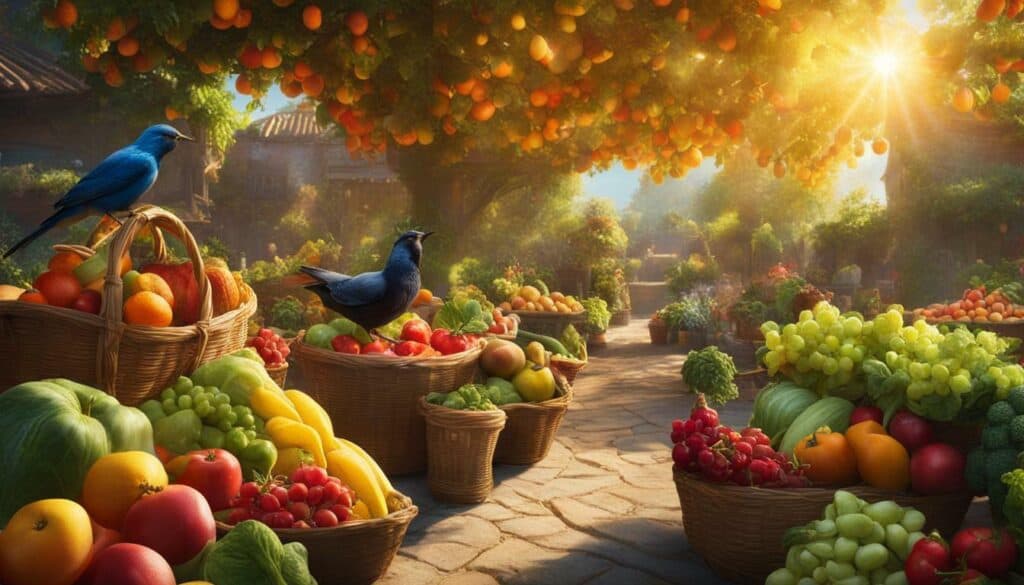
A Quote to Inspire:
“The glory of gardening: hands in the dirt, head in the sun, heart with nature. To nurture a garden is to feed not just the body, but the soul.” – Alfred Austin
Conclusion
In conclusion, the simple garden is not just a source of beauty and fresh produce; it is a gateway to creativity, health, and happiness.
Gardening offers a range of health benefits, both physical and mental. Engaging in this enjoyable activity can be a form of exercise, helping to reduce the risk of heart disease and diabetes. It also promotes mental well-being by alleviating stress and warding off depression. In addition, cultivating your own fruits, vegetables, and herbs in the garden provides an excellent opportunity to incorporate healthy foods into your diet.
For beginners, starting with easy-to-grow plants like lettuce, kale, and herbs can be a great way to get started in the world of gardening. Furthermore, involving children in this activity can be a wonderful way to teach them about nature, science, and the importance of healthy eating habits. Gardening creates an environment where they can learn and appreciate the wonders of the natural world.
However, it’s essential to prioritize safety in the garden. Wearing appropriate clothing and protective gear, as well as testing the soil, are important precautions to ensure a safe gardening experience. By taking the necessary measures to protect ourselves, we can fully enjoy the simplicity and joy that gardening brings.
Overall, gardening is a simple and enjoyable way to connect with nature, improve physical and mental health, and savor the satisfaction of enjoying the fruits (and vegetables) of your labor. So why not embark on your gardening journey today and experience the multitude of benefits it has to offer?
What Are Some Simple Ways to Discover Secrets About My Garden?
Discovering the secrets of your garden can be an exciting endeavor. Start by observing closely notice the different plants, insects, and wildlife that contribute to its ecosystem. Experiment with new plants, colors, and textures to reveal hidden treasures. Engage in regular maintenance and ask local gardeners for advice.
FAQ
Q: What are the health benefits of gardening?
A: Gardening offers various health benefits, including exercise, which reduces the risk of health problems such as heart disease and diabetes. It also improves mental well-being, helping to reduce stress and ward off depression.
Q: Can gardening be a way to incorporate healthy foods into my diet?
A: Absolutely! Gardening provides an opportunity to grow and consume fresh fruits, vegetables, and herbs, making it an excellent way to incorporate healthy foods into your diet.
Q: What are some easy plants to start with for beginners?
A: Beginners can start with easy-to-grow plants such as lettuce, kale, and various herbs. These plants are low-maintenance and perfect for those new to gardening.
Q: Is gardening a good activity to involve children in?
A: Yes! Gardening is a great activity to involve children in as it teaches them about nature, science, and healthy eating habits. It’s a wonderful way to bond with children and educate them about the environment.
Q: What safety precautions should I take when gardening?
A: It’s important to wear appropriate clothing and gear while gardening, such as gloves and sturdy shoes. Additionally, testing the soil before gardening is crucial to ensure it is safe for planting.
Q: How does gardening improve physical and mental health?
A: Gardening serves as a form of exercise, improving physical health. It also provides a peaceful and calming environment, reducing stress and promoting mental well-being.
Q: What are the rewards of gardening?
A: The rewards of gardening are plentiful. You get to enjoy the fruits (and vegetables) of your labor by harvesting and consuming the fresh produce you have grown. It’s a satisfying and fulfilling experience.

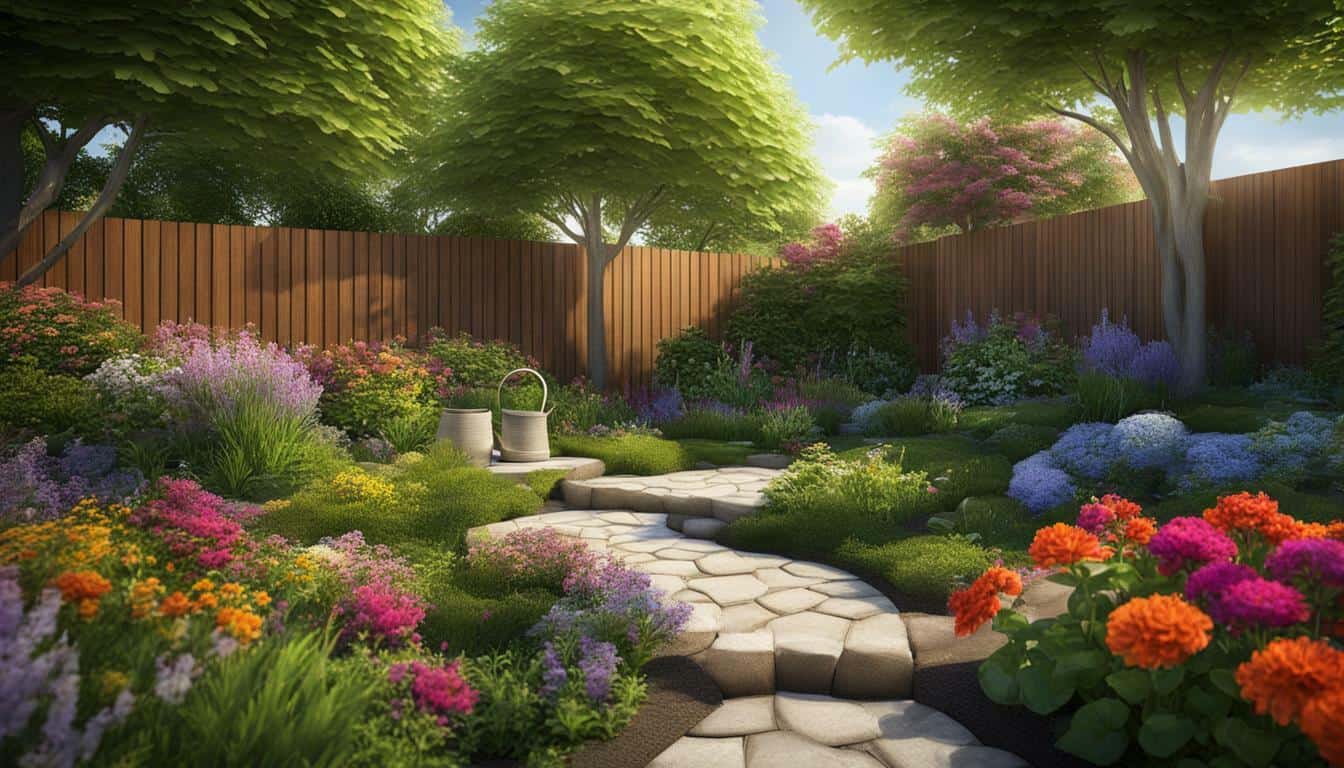
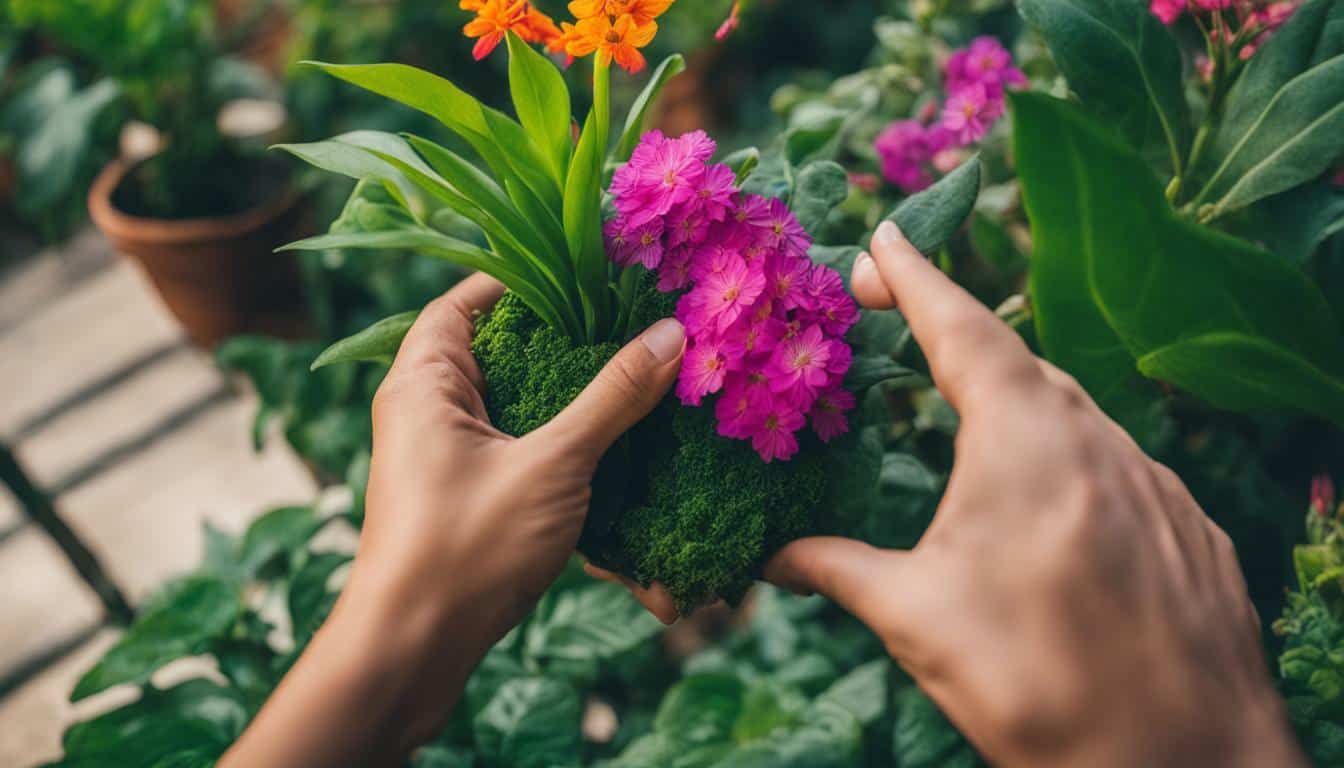
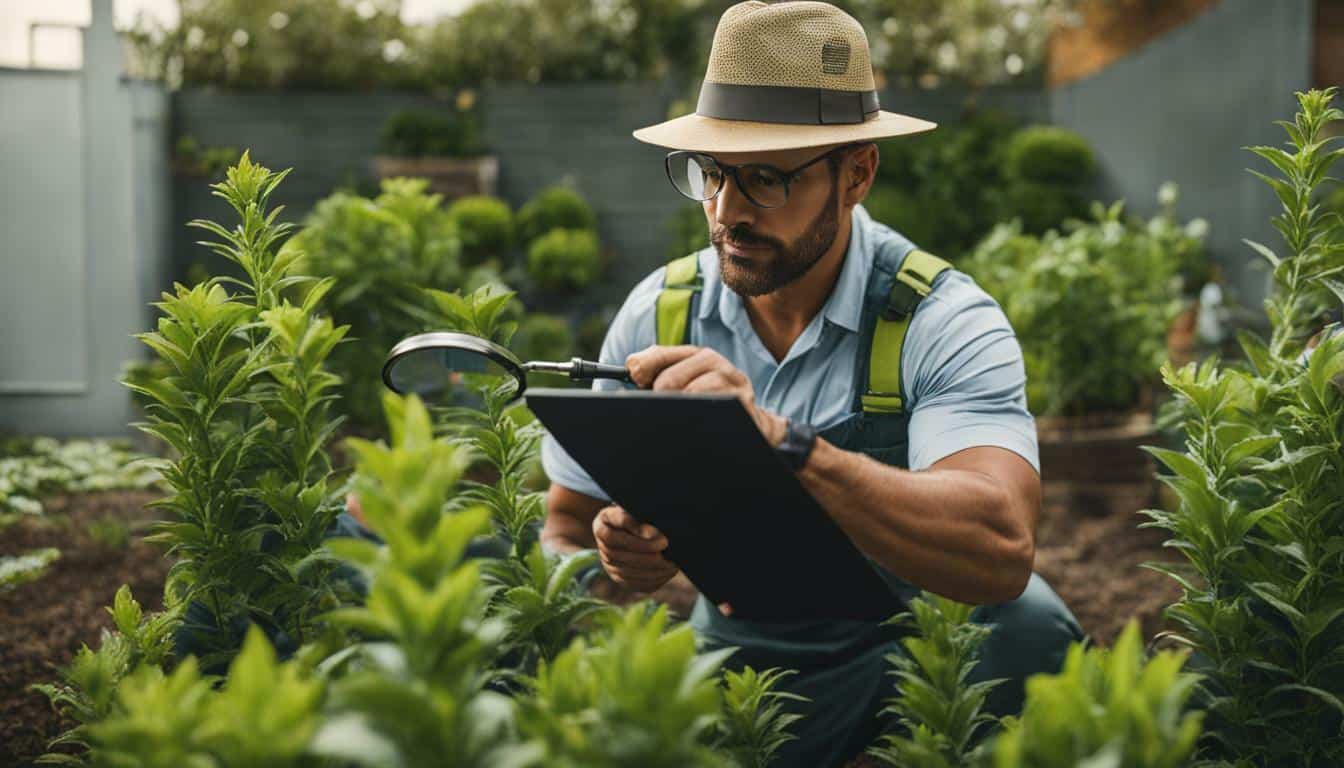

Leave a Reply